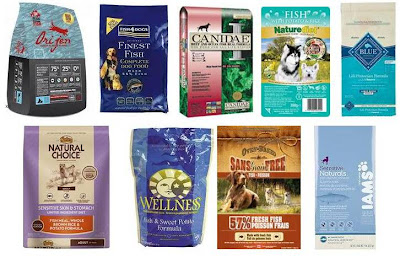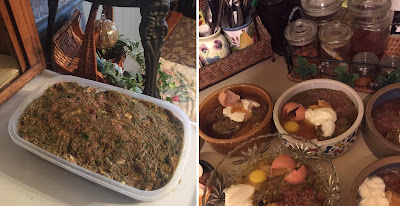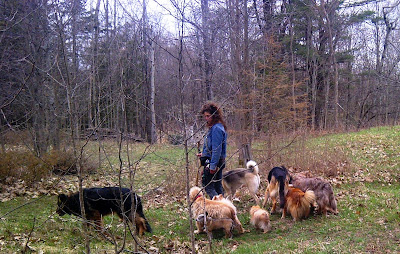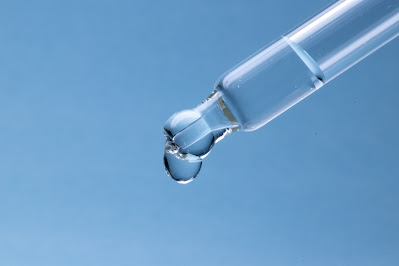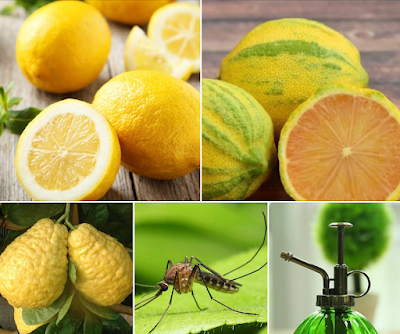Fish, Fish Meal and Ethoxyquin – Danger, Do you Really Want This in Your Dog and Cat Food?
- Fish in Pet Food and The Greed of The Pet Food Industry
- Fish in Pet Food and Ethoxyquin
Fish in Pet Food and The Greed of The Pet Food Industry
Fish-based
dog kibble has become a very in-demand consumer item on pet store shelves. But
is it really good for your dog – the answer is NO, and here is why…
It is very
important to understand that when provided in the right quantity - fatty fish (i.e.
herring, mackerel, menhaden, salmon, sardines, sprat), are an excellent source
of protein and omega 3 fatty acids.
If fish represents a large portion
of a dog’s daily diet (or if fed fish exclusively) fish becomes a very dangerous food stuff. Large amounts can result in a
thiamine (Vitamin B1) deficiency, leading to:
- Appetite loss;
- Weight loss;
- Seizures, and in severe cases;
- Death.
On a daily
basis, my dogs each get a small piece of fatty fish; however this fish
represents only a small percentage of their daily food intake.
So, in light
of the fact that too much fish can be damaging to a dog’s health...
Why are pet
food manufacturers producing lines of dog kibble that feature primarily fish? To make money from waste that would otherwise be thrown away...
Because...
- They use the by-product of fish processed for human consumption - which they would otherwise have to throw away - and instead make money on this waste product;
- Fishery waste is i.e. fin, tail, head, scales, sludge) which cannot be used in human-grade products;
- They use whole fish that cannot be used to produce human-grade food – i.e. the fish was dead, diseased or dying when harvested.
- They can use fish meal, an inexpensive source of protein;
- Fish meal is made from fish harvested for that specific purpose – i.e. herring, menhaden, pollack, etc.
And They Make It Sound Like You are Getting Great Value For your Money...
But What They Are Really Doing is...
2. Fish in Pet Food and Ethoxyquin
- Conning you into thinking the product is great for your dog by leveraging the ‘hot’ words Omega Fatty Acids;
- Taking advantage of the growing number of dogs that are acquiring food sensitivities to more typical protein sources (like beef and chicken) which are full of toxins (growth hormones, antibiotics). Also unless the label on the food says otherwise is from dead, diseased, dying or disabled (4D) animals.
In other
words – the pet food industry is not introducing fish into your dog’s diet for
your dog’s health but instead to make a tidy profit regardless of the health
cost to your dog.
The
irresponsibility does not stop there…
Having
advised many client’s about truly nutritional and safe diets for their dog’s I
have had a lot of opportunity to hear the expectations of those loving humans
who try to provide the best for their dogs. I have heard so many say ‘but the
pet store staff told us this was a good product’ or ‘the label says Omega Fatty
Acids, and this is an expensive-to-purchase kibble so we thought it really did
meet nutritional requirements for our dog’s daily intake of Omega Fatty Acids’.
I then walk them through the ‘rip-off’. Most consumers have absolutely no idea
what is the correct ratio of Omega 3:6. They also do not know the serious
impact on their dog’s health of an non-balanced intake. The manufacturers know
that the typical consumer is not well-informed regarding this issue – and take
advantage they do – big time.
Despite the
fact that manufacturers are leveraging the idea of great health via the
provision of Omega Fatty Acids, I have not seen one dog food –
including fish-based kibbles, that provide a proper balance of Omega 3 to Omega 6
Fatty Acids. The ratio should be in the range of 2:1 for Omega-3 to Omega-6.
Meaning for every 1 part of Omega 6 there should be 2 parts Omega 3.
Commercially
made dog food is - in every product I have looked at to date, in direct opposition
to this essential balance. If you look at a dog food kibble label you will find
copious amounts of Omega 6 and in comparison an infinitesimal amount of Omega
3. An out-of-balance ratio can disrupt the balance of pro and anti-inflammatory
agents in the body resulting in chronic inflammation and elevation of the risk
of health issues such as allergies, arthritis, diabetes and more – to understand
more about the benefits and risks read more here.
2. Fish in Pet Food and Ethoxyquin
So what does this
have to do with fish?
Well almost all fish meal used in dog and cat food
contains Ethoxyquin. Ethoxyquin is used as a preservative in pet foods to
prevent the (further) rancidification of fats. It should be noted that much of
the meat and fat used in pet food is rancid prior to being processed into the
kibble as the ingredients used may be waste that cannot be used in human grade
food processing).
But you will
NOT see it (Ethoxyquin) listed on the ingredients. And here is why…
Ethoxyquin is
an anti-oxidant used as a food preservative and a pesticide (called ‘Stop-Scald’). It is listed and identified as a
hazardous chemical by OHSA. It has a rating of 3 on a scale of 1 to 6; with 6
indicating super-toxicity and requiring less than 7 drops to cause death. The
containers that Ethoxyquin is stored and shipped in are marked with the
word/symbol ‘POISON’. The US Department of Agriculture lists and controls
Ethoxyquin as a pesticide.
The FDA has
mandated that Ethoxyquin is no longer legal for use in human food – with the
exception of some spices. The use of Ethoxyquin remains legal for use in animal
grade food.
Ethoxyquin Is
a Known Carcinogen
Ethoxyquin causes:
- Cancer of the kidneys;
- Significantly increases the chance of stomach tumours, and;
- Bladder cancer, it has also been shown to cause;
- Allergic reactions;
- Behaviour problems;
- Deformity in puppies;
- Infertility;
- Organ failure;
- Skin problems.
Sixteen plus
years ago, on August 14, 1997 the FDA issued a statement (you can read it here)
in which the FDA reveals that on July 31, 1997 the FDA advised manufacturers
and trade associations for the pet food industry regarding serious issues over
the assumed ‘safe’ dosage of Ethoxyquin as related back to the FDA’s ‘voluntary’
request to pet food manufacturers to lower the level of this very toxic
chemical in the making of dog food.
A year and a
half ago, on May 25, 2012 the FDA’s Center for Veterinary Medicine (CVM) issued
another notice – this one to remind the industry about the labelling and use requirements for Ethoxyquin. You can read it here.
Suffice it to
say that Ethoxyquin is a seriously dangerous substance – banned from human consumption
due to its grave and lethal dangers. It should be banned from dog and cat (as
well as other animal) food, but to date it has not been.
Why?
Well it is not because
it does not pose a very serious threat to non-human animal health but instead
due to lobbying. And believe me the company that makes Ethoxyquin is no
stranger to the practice of lobbying…
Monsanto the
company responsible for lies and conceits, for damaging the environment and the
food chain - with their (Monsanto’s) bevy
of toxic pesticides and herbicides – with their round-up ready Genetically
Modified seeds, knows how to keep their products from being banned…no matter
what the cost to human and non human animals, and the environment. Monsanto are
after all the masters of greed for profit, regardless of the cost to the health
of living beings and ultimately the planet.
Unless the manufacturer clearly states that the product is ethoxyquin free, your dog is likely consuming ethoxyquin, a carcinogen.
Holistic Diet, Nutrition, Wellness Services Tailored to Your Individual Dog and Cat
For information about my holistic diet, nutrition and wellness services, visit my holistic wellness services page.
Maintain good health | Address acute and chronic health issues | Pre and post surgery support and recovery
My holistic wellness services are available worldwide via video consultation.
🌎 USA | Canada | UK | Europe | Australia | New Zealand | Asia | South and Central America | Africa | UAE
📱FaceTime | Facebook | Skype | WhatsApp
To set-up your holistic wellness consultation get in-touch via email, go to my contact me page.
Holistic Behavioral Services for Your Dog
For information about my holistic behavioral services, visit my holistic behavioral services page.
For dogs of all ages, sizes and breeds.
My behavioral services are available worldwide via video consultation.
🌎 USA | Canada | UK | Europe | Australia | New Zealand | Asia | South and Central America | Africa | UAE
📱FaceTime | Facebook | Skype | WhatsApp
To set-up your holistic behavioral session get in-touch via email, go to my contact me page.
Affiliations to Companies
✓ None.
✓ I don't sell food, supplements, or other products.
✓ I'm not aligned with any companies.
Article and graphics by Karen Rosenfeld.
